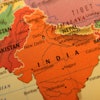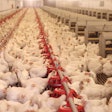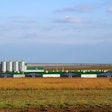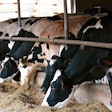In recent weeks, all eyes have been on Ukraine. Aside from
the obvious concerns about world peace and conflict avoidance, the grain and
feed industries have been watching closely with their own, more business-minded
motivations. Namely, the implications conflict in the region would have on the grain
trade, the cost of human, and, in turn, the cost of livestock feed the world
over.
According to U.S. Grains Council (USGC), Ukraine reported a
record 2013-14 corn harvest of 30.9 million metric tons (MT) – making it the No.
3 top corn producing nation and 4th largest corn exporter; it is also the 5th
largest wheat exporter in the world. USDA projections suggest that total 2014
Ukrainian exports will reach 18.5 million MT (728 million bushels), leaving
approximately 3.5 million MT (138 million bushels) remaining for exports
between now and June.
To date, the ports of Crimea remain open; however, according
to USGC’s Cary Sifferath, regional director for the Middle East and Africa, “shipments
are becoming increasingly difficult.”
A Feed International source based in Russia suggests the
conflict has already hurt the logistic routes, and the producers from the
mainland Ukraine are losing the possibility to supply grain via the ports of
Crimea.
“If the region becomes part of Russia, or becomes an
independent state, then the logistic routes will be changed – maybe from that
moment they will go through Odessa ports – but it will be definitely more
expensive for grain producers and thus may affect the final prices on the
contracts,” he says.
FI’s source says that, should separatist tensions split the
region into Eastern and Western parts, two regions with differing political intensions
with “ruin the joint infrastructure.” For example, “agricultural holdings with
assets on both sides will suffer extremely heavy losses.”
“Ukraine as the region not only will fail to take the
position of the second in the world largest corn exporters, but also will lose
the largest part of grain production capacities,” he says.
Commodity market reaction
While there have not been signs of serious trade disruption,
the commodity market has reacted accordingly.
Farmers fearing a devaluing currency and questionable credit
are holding their grain to hedge against the “the uncertainty caused by growing
tensions in the region.” Wheat futures, for example, dropped as Ukranians began
hoarding grain to hedge against a weakening market. Meanwhile, Ukrainian currency
has fallen to record lows against the U.S. dollar.
“Ukrainian farmers are beginning to hold onto their grain as
a way to hedge against a declining local currency,” says Gina Tumbarello, manager
of International Trade, American Feed Industry Association, noting that escalating
corn and wheat prices in the region rose higher to due to the conflict. “We are
hearing that Egypt was told that their shipments of corn from the Ukraine will
be delayed two to three weeks. This should be manageable. The real problem
would be if we start seeing defaults on such contracts.”
Coming off good crop year, key exporting countries see the
potential marketing opportunities (namely additional U.S. exports to North
Africa, the Middle East and China), but the associations warn against the potential
issues if the Crimea situation escalates.
In addition, the global supply of corn and wheat may be
impacted if Ukrainian farmers aren’t able to get financing to start planting in
the next 30 to 40 days for the next crop season.
“The economic instability will affect Ukrainian farmers
looking to plant this year’s crop,” says USGC’s president and CEO Tom Sleight.
“Ukraine is in a tough spot financially, and planting season is just around the
corner.”
With tight corn and wheat stocks, the international feed
industry is concerned about how the conflict will play out in the weeks and
months ahead and what it will do to grain prices. When a key agricultural player
such as Ukraine is affected by geopolitical strife, it reminds us of how interconnected
our interests and businesses are with the global market.
As the Russian Parliament prepares to organize a vote on
Crimea’s annexation and sanctions are set in place, the industry – and the
world – continues to watch and wait.













